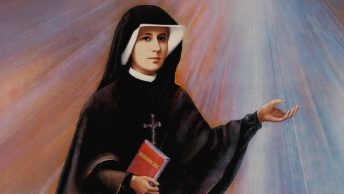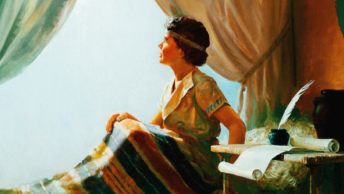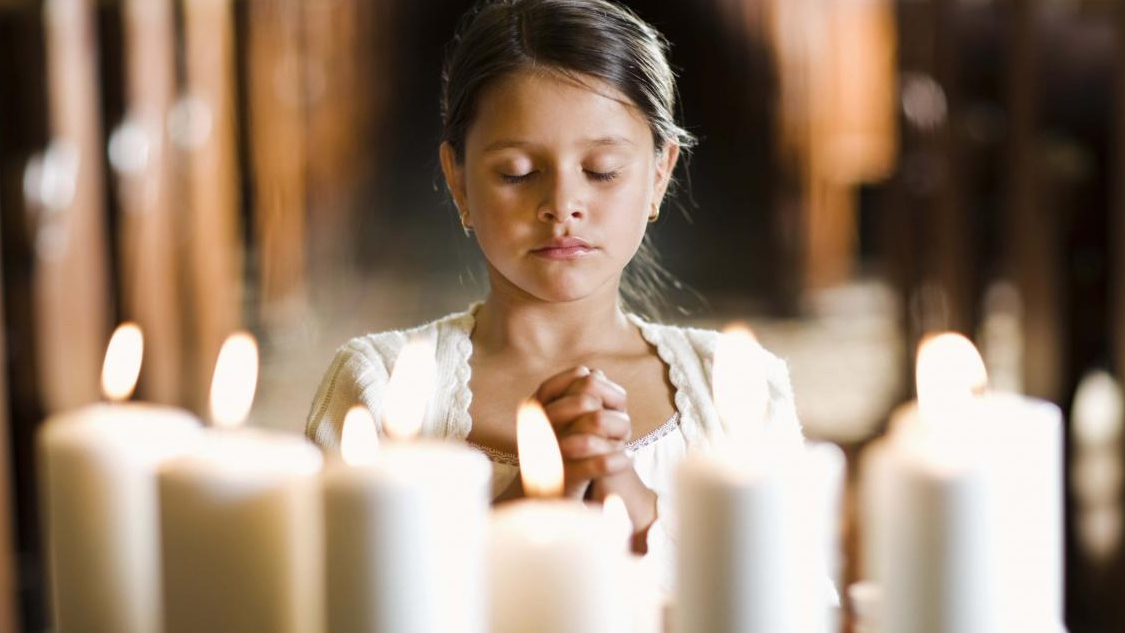Although few make the time for contemplative prayer, it is essential if we are to grow closer to God. It is strongly recommended by St. Teresa of Avila and other spiritual writers.
For me, contemplative prayer is allowing God to intervene in our minds and hearts in a way in which we focus on Him, pray to Him, praise Him and allow Him to speak to us. A big part of it is listening and being silent before the Lord. Remember when the prophet Elijah spoke to the Lord.
Then the LORD said: Go out and stand on the mountain before the LORD; the LORD will pass by. There was a strong and violent wind rending the mountains and crushing rocks before the LORD—but the LORD was not in the wind; after the wind, an earthquake—but the LORD was not in the earthquake; after the earthquake, fire—but the LORD was not in the fire; after the fire, a light silent sound.
1 Kings 19:11-12
The Lord did not speak in the strong and violent wind, earthquake or fire, but in a silent whisper. That is contemplative prayer: God speaks to you in a whisper. It is during this time that we need to let God love us, minister to us and encourage us.
If you’re new to contemplative prayer, begin by carving out a consistent time of the day where you may be alone and in silence for even a short time. To begin, start with five minutes. Invite the Holy Spirit to come into your heart. Ask the assistance of the Blessed Mother and your guardian angel. Take a section of the four Gospels, particularly one which contains the words of Christ Himself, read it slowly, reflect on it and think how it might apply to you. Speak to the Lord about it with words, or without words in the silence of your heart. When you finish your time, try to make a resolution to apply something you’ve read to improve your life: perhaps to be more patient with others, to stop speaking uncharitably about others, to be more generous, be more truthful, avoid bad language, etc. Increase your time of contemplation as you are able. Seek out the advice and support of a good priest to help you advance. I think you’ll find it most profitable to your spiritual well being.
Liturgy of the Hours
When I was ordained, I assumed the obligation of daily praying the Liturgy of the Hours, or Divine Office or Breviary. The clergy (bishops, priests, and deacons) and religious are required to pray the Divine Office; dedicated members of the laity are also welcome to pray along with us, if they choose, and this can be a helpful tool to them in growing in contemplative prayer. The Office is the public prayer of the Church, the Catechism of the Catholic Church explains, “the prayer of the whole People of God.” (1175) It is a collection of daily psalms, hymns, prayers and Scripture readings which we read, pray and meditate on at different times of the day. The practice goes back to the earliest days of the Church, and is in response to Jesus telling His Apostles of the “… necessity for them to pray always without becoming weary.” (Luke 18:1)
The Vatican’s Office of the Sacred Congregation for Divine Worship explains, “From ancient times the Church has had the custom of celebrating each day the liturgy of the hours. In this way the Church fulfills the Lord’s precept to pray without ceasing, at once offering its praise to God the Father and interceding for the salvation of the world.”
The Catechism goes on to explain, “The hymns and litanies of the Liturgy of the Hours integrate the prayer of the psalms into the age of the Church, expressing the symbolism of the time of day, the liturgical season, or the feast being celebrated. …The lectio divina, where the Word of God is so read and meditated that it becomes prayer, is thus rooted in the liturgical celebration.” (1177)
As a permanent deacon, I pray the Office daily, both in the morning and evening, and sometimes during the day. It takes me an average of an hour and a half; I typically pray it at home in front of a crucifix or sacred image. I usually pray it alone, but I find it particularly impactful when I have the chance to pray it in community. One of my favorite things when I have meetings with my fellow deacons is when we begin with the Office’s morning prayers.
It is a great consolation to me knowing that, with the Office, the entire Church is praying with me throughout the day. The entire body of Christ is praying for one another, asking God to take over and that Christ be made manifest. It is a powerful spiritual tool.
Morning prayer helps me prepare for the day. Evening prayer gives me the opportunity to reflect on what has happened during the day, and to lift up my concerns in prayer. The Psalms remind me I need to be praising God on an ongoing basis. The Office is a way I can maintain God’s presence in my life each day, develop an intimacy with Him, grow closer to Christ and grow in holiness.
The laity are not required to say the Office daily, but are encouraged by the Church to do so. If you live near a monastery, retreat center or parish church that publicly prays the office, you may go and participate in certain parts of the Office, such as Vespers/Evening prayer, although I realize that there may be restrictions on some being able to do this during this time of pandemic. Otherwise, you may do it alone at home; there are many wonderful books explaining the most effective ways lay people can do the Liturgy of the Hours. I think you will find it to be a source of great spiritual strength, and a wonderful way to grow in your faith.
But whatever tool you use, as long as it is a technique approved by the Catholic Church, I urge you to begin. I know it will play a vital role in helping you grow closer to the Lord.








